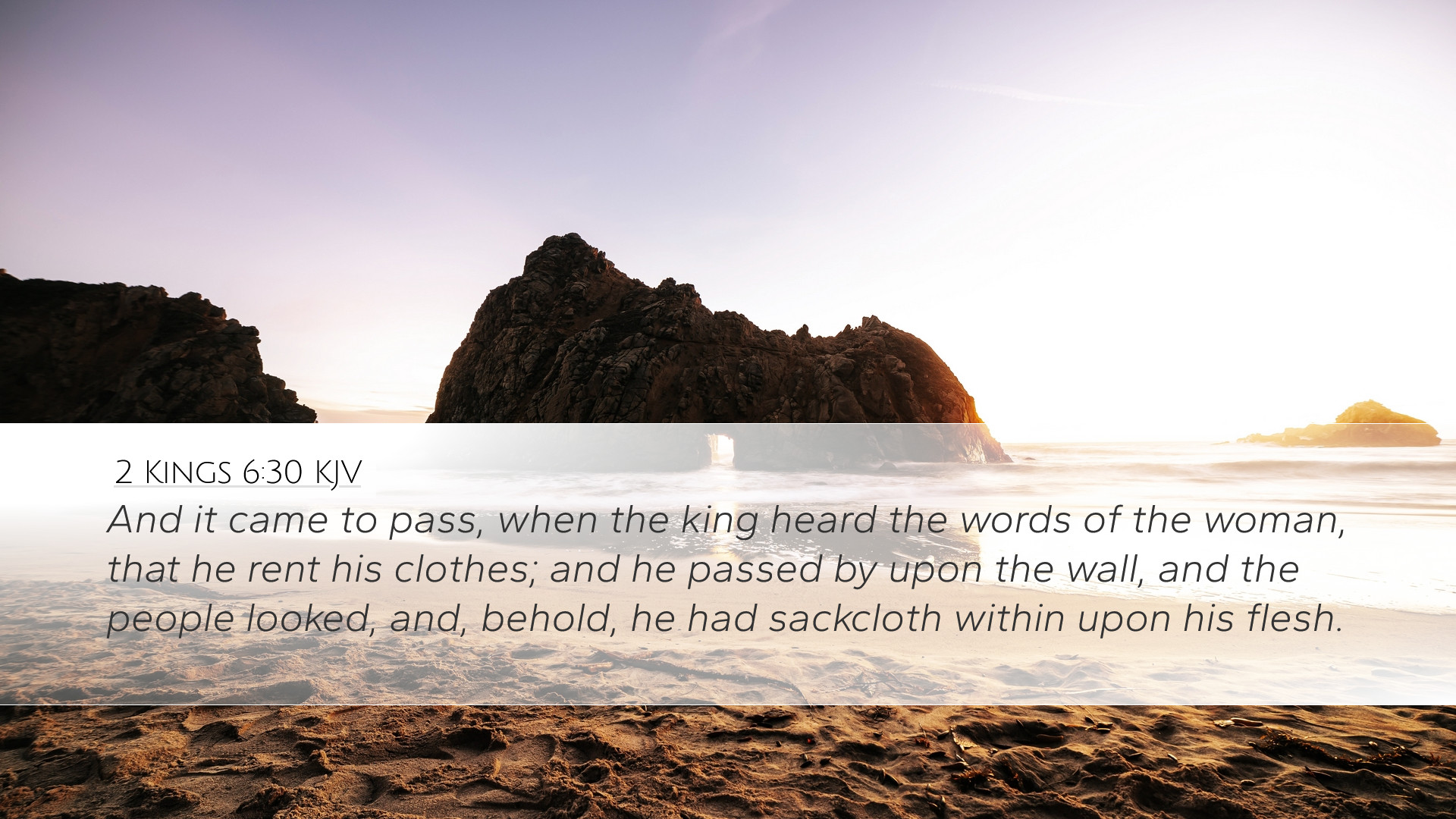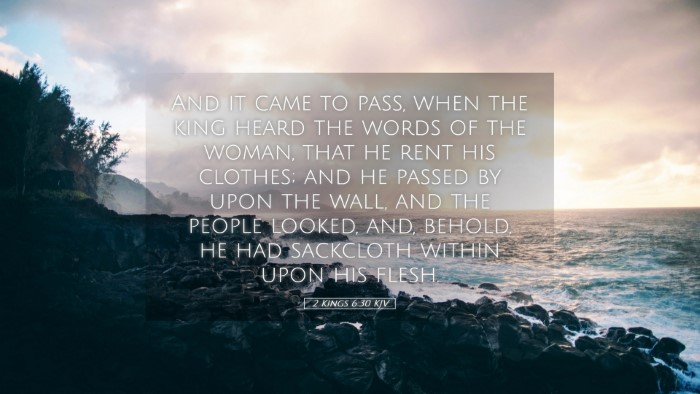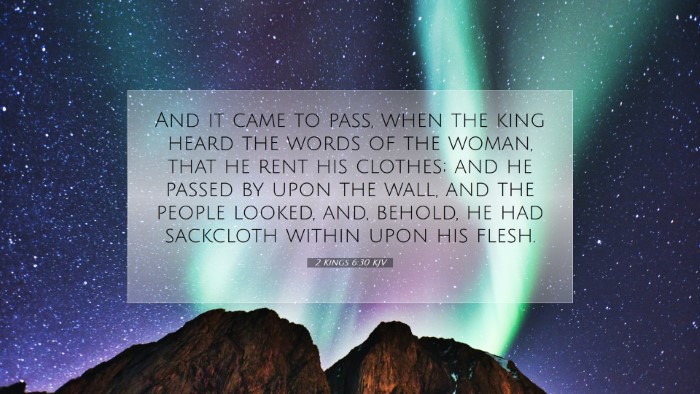Commentary on 2 Kings 6:30
Verse Context: 2 Kings 6:30 describes a critical moment in the narrative of the siege of Samaria, a time of intense famine and despair. The text reads: "When the king heard the words of the woman, he rent his clothes; and he passed by upon the wall, and the people looked, and, behold, he had sackcloth within upon his flesh." This verse captures the agony of the king and the tragic circumstances faced by the people of Israel.
Historical Background
The historical context of this passage is vital to understanding the weight of the king’s actions. The siege by the Arameans had resulted in extreme famine in Samaria, leading to desperate measures. Rates of starvation and the dire conditions of the populace underscore the severity of God’s judgment upon Israel for their idolatry and rebellion against Him.
Commentary Insights
Matthew Henry’s Commentary
Henry emphasizes the king's grief as a reflection of his internal state amid such chaos. The tearing of his clothes signifies deep mourning and distress over the conditions of his people. It represents both his personal anguish and the larger tragedy of Israel's plight. Henry notes that the sackcloth—an ancient sign of mourning—underneath the king’s royal attire symbolizes his recognition of the seriousness of the sin that led to this calamity.
Albert Barnes’ Commentary
Barnes underscores the social implications of the king's reaction. He indicates that the king's distress was shared by the citizens of Samaria, who looked upon him for leadership in a time of crisis. The women's act of sharing their plight was a desperate plea for assistance among the community. Barnes highlights how the king's visible mourning was a stark contrast to the powerlessness felt by those suffering from famine, urging the reader to consider the king's responsibilities towards his people and the moral decay that led them to such desperation.
Adam Clarke’s Commentary
Clarke provides a psychological perspective on the king's actions, suggesting that his tearing of clothes may also signify a recognition of the divine judgment upon his reign. He interprets the sackcloth as an acknowledgment that public repentance was required. Clarke points out that the king’s display of sorrow is not merely for show; it represents a profound spiritual condition that acknowledges the need for national repentance and divine intervention.
Theological Reflections
From these commentaries, several theological reflections emerge that are pertinent for pastors, students, and scholars:
- The Role of Leadership: The king’s response highlights the significant burden of leadership during difficult times. Spiritual leaders are called not just to govern, but to be mirrors of compassion and repentance before their people.
- The Importance of Mourning for Sin: The act of tearing clothes and donning sackcloth is reminiscent of true repentance. It invites the modern reader to contemplate their own response to sin and societal collapse.
- The Community's Desperation: The communal aspect of the story emphasizes the need for collective awareness of sin and the resulting consequences. Our current societal issues echo these sentiments, prompting in-depth reflection on shared morality.
- Divine Judgment and Mercy: The tensions between judgment and mercy pervade this text. While the siege is a sign of judgment, there is also an implicit hope for redemption and restoration when one turns back to God.
Practical Applications for Today
As we study this verse, practical applications can be drawn for contemporary faith communities:
- Leadership and Accountability: Church leaders are reminded of their responsibilities to their congregations in times of spiritual famine. They must not only lead but also demonstrate humility and a willingness to repent.
- Empathy and Compassion: This passage calls believers to respond compassionately to those in desperate situations. Community engagement and response to social injustices should be rooted in empathy.
- The Call to National Repentance: The wider canonical narrative calls for awareness of corporate sin. There is a collective responsibility for believers to pray for their lands and seek God’s mercy on behalf of their communities.
- Hope Amid Despair: Finally, the passage reminds us that, in times of crisis, there is always the potential for divine intervention if we turn to God with sincere hearts.
Conclusion
2 Kings 6:30 serves as a poignant reminder of the complexities of leadership, the necessity of communal repentance, and the consequences of turning away from God's commandments. The commentaries by Henry, Barnes, and Clarke provide rich insights that call us not only to understand the historical context but also to reflect upon their implications for 21st-century faith and practice.


